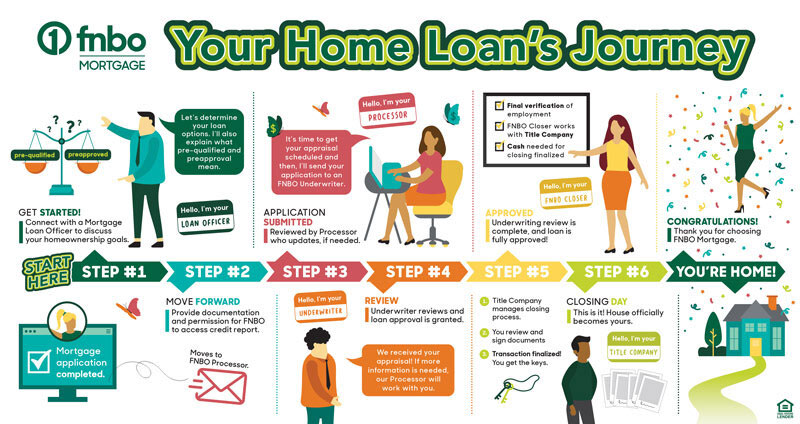Physician Loan Mortgage Calculator: Crunch Numbers Fast!
A Physician Loan Mortgage Calculator helps doctors estimate monthly payments on home loans tailored for medical professionals. It factors in unique terms like zero down payment or no PMI.
Navigating the complex world of homeownership becomes more manageable for physicians with the right tools – and a Physician Loan Mortgage Calculator stands out as an essential resource. This specialized calculator accounts for the atypical financial profiles of doctors, often burdened with medical school debt but also anticipating higher-than-average future earnings.
It enables physicians to project their mortgage payments, considering unique benefits offered to them, such as higher loan limits and relaxed underwriting standards. Doctors aiming to balance their financial planning with the demands of their profession find this calculator instrumental in planning for one of life’s major investments.
Introduction To Physician Loan Mortgage Calculators
Physicians often face unique financial situations. A Physician Loan Mortgage Calculator helps them plan smartly. It considers student loans, different employment contracts, and future income. It makes buying a home easier. Let’s explore these calculators’ unique features and understand why physicians use them.
Understanding The Unique Features
These calculators stand out because they focus on doctors’ specific needs. High loan limits and flexible debt-to-income ratios are considered. No private mortgage insurance, often called PMI, is a bonus. Terms like ‘residency’ and ‘fellowships’ have special importance. To understand, see the table below.
| Feature | Benefit |
|---|---|
| High Loan Limits | Bigger loans for pricier homes |
| Flexible DTI | Student debt less of an issue |
| No PMI | Savings on insurance costs |
| Recognition of Medical Terms | Better-tailored loan options |
Why Physicians Opt For Specialty Mortgage Loans
Physicians seek specialty loans for several reasons. Favorable terms are attractive. Student debt does not block homeownership dreams. Employment potential leads to the approval of substantial amounts. Here is a quick list.
- Low or No Down Payment: Keep savings for other uses.
- Student Loans Considered: No penalty for educational debt.
- Contract Income Acknowledged: Future earnings get counted today.
- Flexible Approval Criteria: Tailored to physician’s financial journey.
Key Components Of A Physician Loan Mortgage Calculator
Navigating through the terms of a physician loan might seem daunting. To simplify the process, let’s delve into the key components of a Physician Loan Mortgage Calculator. This robust tool helps doctors understand what they can afford, focusing on distinct input parameters and offering a glimpse into monthly payments, interest rates, and more.
Input Parameters: Salary, Debt, And More
A physician loan mortgage calculator requires specific information to provide accurate estimations. Key input parameters include:
- Annual salary – your income determines borrowing capacity.
- Existing debt – this impacts overall loan eligibility.
- Credit score – a crucial factor in interest rate determination.
- Loan term – the repayment period affects monthly payments.
Understanding Interest Rates And Repayment Terms
Accurate calculation depends on understanding interest rates and repayment terms. Interest rates influence the total loan cost over time. Repayment terms specify the loan’s duration. Shorter terms lead to higher monthly payments but lower overall interest.
The Role Of Down Payment And Loan Limits
Down payment and loan limits play vital roles in the mortgage process. Some physician loans offer low or no down payment options, appealing to recent graduates. Loan limits depend on factors such as location and lender policies. Such nuances alter borrowing limits and down payment requirements.
Using The Calculator To Your Advantage
Smart homebuying means using every tool at your disposal. The Physician Loan Mortgage Calculator is one such tool. It lets you peek into the future of your finances. With it, you unlock a clearer understanding of your mortgage costs specific to physician loans. This simple guide helps you turn data into a finely-tuned financial strategy.
Case Studies: Real Examples
Meet Dr. Smith and Dr. Wu, two physicians with different scenarios. Dr. Smith is buying a home in an expensive urban area. He uses the calculator to find a monthly payment that fits a tight budget. Dr. Wu plans to buy in a more affordable suburb. She uses the calculator to plan for larger down payments and future investments. Both navigate purchase prices, down payments, and loan terms. They assess their situations with real numbers, finding tailored solutions.
Planning For The Future: How The Calculator Can Aid Financial Planning
- Anticipating Cash Flow: Enter your expected income and the calculator estimates monthly payments.
- Considering Down Payments: Use different down payment amounts to see interest savings over time.
- Long-Term Goals: Adjust terms to align with your financial objectives.
Understanding these elements prepares you for stable financial growth.
Common Pitfalls And How To Avoid Them
While the calculator is a powerful ally, be mindful of mistakes.
Ignoring Additional Costs: Don’t forget to include taxes and insurance in your calculations.
Overestimating Affordability: A big loan might seem manageable on paper. Remember to consider your lifestyle and emergency funds.
Lack of Research: Rates vary by location and lender. Compare outcomes with different variables to ensure the best deal.

Credit: www.ucbi.com
Comparing Traditional Vs. Physician Loan Mortgages
Deciding on a mortgage can feel overwhelming. Traditional and physician loan mortgages differ in many ways. Understanding these can save you time and money. Let’s delve into the key differences to help you make an informed choice.
Interest Rates: Fixed Vs. Adjustable
Traditional mortgages often offer fixed interest rates. Your payments remain the same over time. Physician loans may provide adjustable rates. These can start lower but change later. It’s vital to consider your long-term plans when choosing.
| Mortgage Type | Interest Rate Type | Pros | Cons |
|---|---|---|---|
| Traditional | Fixed | Stability in payments | Higher initial rates |
| Physician Loan | Adjustable | Lower start rates | Potential increase over time |
Private Mortgage Insurance (pmi) Considerations
PMI protects lenders if you default. Traditional loans often require it if your down payment is under 20%. Physician loans might not need PMI, even with a small down payment. This can lead to significant savings.
- Traditional Mortgage: PMI likely required with <20% down payment
- Physician Loan: No PMI, more savings
Loan Approval Process: Streamlined For Physicians?
The approval process can be faster for physician loans. Lenders understand doctors’ potential for future earnings. Traditional loans often involve a longer, more detailed examination of your finances.
- Streamlined approval for physicians.
- Traditional loans may have a lengthier review process.
Advanced Features Of Physician Loan Calculators
Physician loan calculators come packed with features designed to simplify complex financial scenarios. What makes these tools truly exceptional are their advanced features. These intuitive elements offer a clearer understanding of repayment strategies, potential savings, and financial planning tailored to medical professionals. Let’s delve into the advanced functions that set these calculators apart.
Amortization Schedules And How To Interpret Them
Understanding amortization schedules is crucial for any doctor managing a mortgage. Physician loan calculators provide a detailed breakdown of how each payment impacts your loan balance over time. Here is what to look out for:
- Principal vs. Interest: See at a glance the portion of your payment reducing the loan’s principal versus interest paid.
- Payment Timeline: Track how your overall balance decreases with each payment made.
- Total interest: Discover the total interest you’ll pay over the life of the loan.
Tax Implications And Deductions
Calculators with tax insight can reveal how a physician mortgage affects your taxes. Consider these features:
- Mortgage Interest Deduction: Estimate how much you can deduct yearly.
- Tax Bracket Considerations: Tailor calculations to your specific tax situation.
- AMT Impact: Assess how the Alternative Minimum Tax may apply.
Incorporating Student Loan Forgiveness Programs
Many physician loan calculators now include options to factor in student loan forgiveness. Features often allow for:
| Program Type | Impact on Payments |
|---|---|
| Public Service Loan Forgiveness (PSLF) | Calculate reduced payments and potential forgiveness amounts. |
| Income-Driven Repayment Plans | Show how different plans could alter monthly cash flow. |
Taking The Next Steps After Calculation
Congratulations on using the Physician Loan Mortgage Calculator! Knowing your estimated mortgage payments is a huge step forward. But what’s next? It’s time to move from calculation to action, ensuring that your dream home becomes a reality. Let’s take those next steps together.
Selecting The Right Lender For Your Physician Loan
Your journey to homeownership starts with choosing a lender who understands your unique position as a physician. As you shortlist lenders, consider factors like interest rates, loan terms, and customer service. A lender with a physician loan program should offer:
- Zero or low down payment options
- Flexible debt-to-income ratios
- Exemption from private mortgage insurance (PMI)
Prefer lenders with a strong reputation in the medical community. They are likely more attuned to your needs.
Preparing Your Application: Documentation And Credentials
Gather necessary documents early to streamline your application process. You will need:
| Document | Description |
|---|---|
| Employment Contract | Indicates future income |
| Proof of Medical Degree | Confirms your status as a physician |
| Bank Statements | Shows savings and financial health |
Check with your lender for a complete list of required documents.
Financial Planning Tips For New Physician Homeowners
As a new homeowner, your financial responsibilities multiply. Plan wisely to ensure long-term success. Implement these tips:
- Maintain an emergency fund for unforeseen home expenses.
- Avoid taking on new debt that can strain your finances.
- Understand your tax deductions as a homeowner.
Remember, owning a home is both an investment and a responsibility. Manage your finances with care.
Frequently Asked Questions Of Physician Loan Mortgage Calculator
Do Doctors Get Lower Mortgage Rates?
Doctors may receive lower mortgage rates through specialized loan programs designed for medical professionals. Eligibility often requires proof of medical degree and employment.
Is A Physician Loan A Conventional Loan?
No, a physician loan is not a conventional loan; it is a specialized mortgage product designed for medical professionals with unique terms and benefits.
What Credit Score Do You Need For A Physician Loan?
Most lenders require a credit score of 680 or higher for physician loans. Some may offer flexibility with scores around 620-680 for strong candidates.
What Is The Default Rate For Physician Loans?
The default rate for physician loans varies by lender, often starting at 0% to 10% down.
Navigating physician loan mortgages just got easier with our calculator. It simplifies complex calculations, ensuring you make informed decisions about your home-buying journey. Embrace the tool for a clear financial path forward, as you step into your new home with confidence.
Remember, the right mortgage plan is within reach—let our calculator be your guide.






